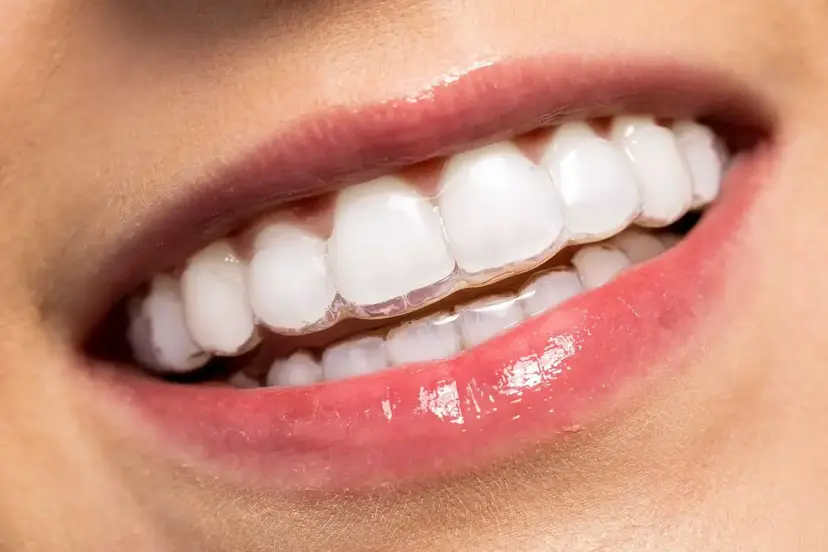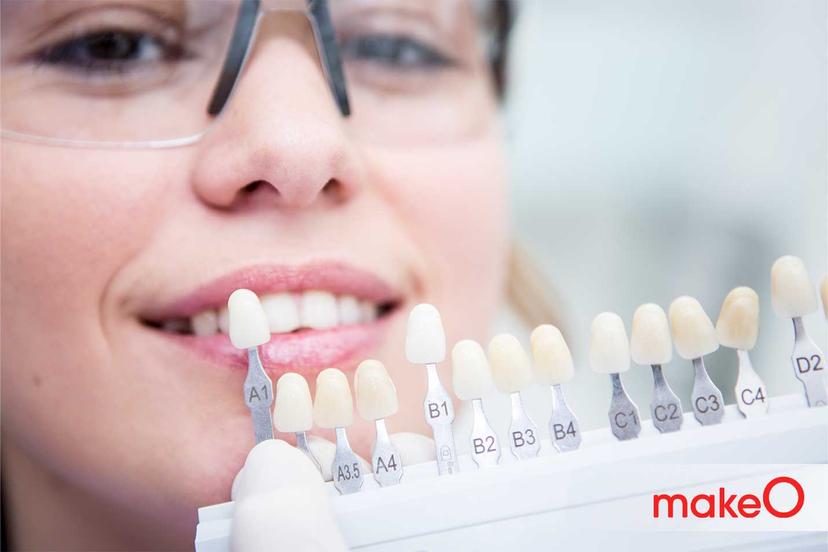MakeO blog
If you have noticed red on your teeth after biting into an apple, then you have seen bleeding gums. And if you've been dismissing bleeding gums as a minor inconvenience, then it's time to rethink. Let's dive deep into the world of gums and understand why it's essential to keep them healthy.
Bleeding gums as the name suggests, is when blood rushes while brushing, biting, flossing or eating. Bleeding gums are an indication of inflammation and other oral health issues. It's like that warning sign– you don't want to ignore it. And with the increasing popularity of spicy chaats and tangy tamarind candies, our gums are working overtime. So, let's give them the attention they deserve.
Causes of Bleeding Gums
1. Poor Oral Hygiene
The primary culprit behind bleeding gums is often neglecting oral hygiene. When you don't brush or floss regularly, plaque builds up on the teeth. This plaque hardens into tartar, irritating the gums and leading to bleeding.
2. Gum Diseases
Conditions like gingivitis or periodontitis are direct results of prolonged plaque and tartar buildup. Gingivitis causes the gums to become red and swollen, making them bleed easily.
3. Brushing Technique
Believe it or not, there's a right way to brush! If you're using a hard-bristled brush or applying too much force, you can damage your gums. Over time, this aggressive brushing can cause the gums to recede and bleed.
4. Hormonal Changes
Fluctuations in hormones, especially during pregnancy, menstruation, menopause, or while on birth control pills, can make the gums more sensitive. This increased sensitivity can lead to swelling and bleeding.
5. Medications
Some medicines, especially blood thinners, can increase the risk of bleeding. Other medications can reduce saliva flow, leading to dry mouth and promoting bacterial growth, which can irritate the gums.
6. Tobacco Use
Smoking or chewing tobacco is harmful in more ways than one. For the gums, tobacco use can reduce blood flow, making them more prone to infection. Over time, this can lead to inflammation and bleeding.
Understanding the root cause of bleeding gums is the first step towards addressing the issue.
Effects of Bleeding Gums on Your Overall Health
1. Heart Disease
The mouth is a gateway, and when gums bleed, they can allow harmful bacteria to enter the bloodstream. Once these bacteria reach the heart, they can attach themselves to any damaged area and cause inflammation. This inflammation can lead to serious conditions and contribute to the buildup of arterial plaques, increasing the risk of heart attacks.
2. Diabetes
Gum disease and diabetes often go hand in hand. While diabetes can increase the risk of developing gum disease due to decreased resistance to infections, gum disease can also exacerbate diabetes. Severe gum disease can make it harder to control blood sugar levels. The inflammation caused by gum disease can lead to insulin resistance, making diabetes management more challenging.
3. Respiratory Infections
The mouth is closely connected to the respiratory tract. Bacteria from infected gums can be inhaled or travel down the tract. This can lead to respiratory infections like pneumonia. Especially for those with existing respiratory conditions, gum disease can worsen symptoms and complications.
4. Complications in Pregnancy
Hormonal changes during pregnancy can make gums more susceptible to plaque, leading to gum disease. Gum disease has also been linked to premature births and low birth weight. The theory is that the bacteria causing gum disease can reach the foetus and cause inflammation, leading to complications.
How to Prevent Bleeding Gums
- Use good quality oral care products for effective cleaning. For example makeO toothsi’s effective and excellent range of oral care products. Our toothsi spark and toothsi smart water flossers are the perfect addition to any oral care routine if your priority is to protect your mouth and have a healthy smile.
- Floss daily as it reaches places your toothbrush can't.
- Rinse your mouth with mouthwash after brushing. Opt for an alcohol-free one to keep your mouth fresh and clean.
- Visit the dentist every few months. Regular check-ups can catch issues before they become severe.
- Eat a healthy and balanced diet. Include vitamin C and K-rich foods to strengthen your gums.
- Quit smoking. It's not just bad for your lungs but your gums too.
- Always stay hydrated. Drink plenty of water to wash away food particles and bacteria.
- Never forget to replace your toothbrush after a few months of use. Every 3-4 months or sooner if the bristles are frayed.
Conclusion
Bleeding gums are more than just an oral issue; they paint a picture of your overall health. By understanding the reasons behind bleeding gums and taking steps to prevent them, you can ensure a healthier life. The best way to do this is to visit a dentist regularly. Only they can determine the cause of your bleeding gums and give you the right treatment methods. And as far as amping up your oral care routine to prevent bleeding gums is concerned, you can always choose makeO toothsi!
FAQs
Why are my gums bleeding for no reason?
Sometimes, hormonal changes, medications, or even brushing too hard can cause gums to bleed. However, it's essential to consult a dentist to rule out any underlying issues as bleeding gums are not a normal occurrence and must be taken seriously to avoid oral problems in the future.
What's the primary bleeding gums reason?
The most common reason is poor oral hygiene and aggressive brushing. Using force to brush or missing out on brushing at all can be quite damaging to your gums and your overall health.
How can I get bleeding gums treatment?
Generally, saltwater rinses, oil pulling or gauze are common bleeding gums treatment methods. However, it is best to treat them correctly under the care of an expert so make sure to visit your dentist when this occurs.
Why do I get bleeding gums while brushing?
It could be due to using a hard-bristled brush or brushing too aggressively. When we apply excessive force or use rough material on our soft tissue, it can cause irritation, inflammation and bleeding. To avoid this, refrain from using extra force, go slow while brushing and choose a soft-bristled small toothbrush instead.
Are swollen and bleeding gums a sign of a severe condition?
This can be determined only by a dentist. Sometimes bleeding gums occur simply due to aggressive brushing. In this case, a saltwater rinse and gauze can do the job. However, many times, bleeding gums can indicate a serious, deep problem. So if you face bleeding gums more often, it is best to go to an expert.
related categories
Related articles

Types of Braces: Removable vs Fixed Braces, Which is Right For You?

This Diwali, Smile Bright With makeO Teeth Whitening Kit

Dr. Pravin Shetty: Pioneer in Lingual Orthodontics & Innovative Smile Solutions
How do I Know I’m the Right Candidate for makeO toothsi Teeth Aligners?

